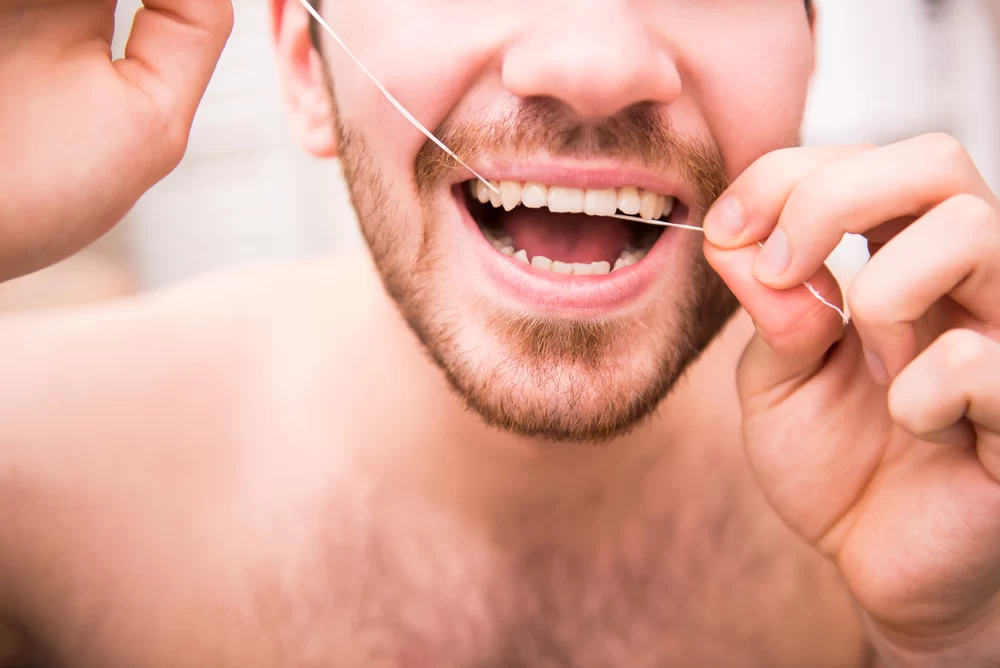
- 1-Understanding Persistent Dry Mouth
- 2-Causes of Dry Mouth
- 3-Treatment Options for Persistent Dry Mouth
- 4-Lifestyle Changes to Manage Dry Mouth
- 5-Oral Products for Dry Mouth Relief
- 6-Real-Life Experiences with Dry Mouth Treatment
1. Understanding Persistent Dry Mouth
Persistent dry mouth, also known as xerostomia, is a condition where there is a decrease in the production of saliva, leading to a dry, uncomfortable feeling in the mouth. While it might seem like a minor inconvenience, persistent dry mouth can have a significant impact on your oral health and daily life. It can lead to difficulties in speaking, swallowing, and even taste, and can increase the risk of cavities and gum disease. Understanding the causes and treatment options for this condition is crucial for managing and finding relief.
2. Causes of Dry Mouth
Dry mouth can be caused by various factors, including:
- Medications: Many prescription and over-the-counter medications, such as antihistamines, pain relievers, and antidepressants, can cause dry mouth as a side effect.
- Dehydration: Insufficient fluid intake or excessive loss of fluids, such as during illness or intense physical activity, can lead to dry mouth.
- Health Conditions: Conditions such as diabetes, rheumatoid arthritis, and Parkinson's disease can affect saliva production.
- Age: As we age, the production of saliva naturally decreases, which can lead to dry mouth.
- Mouth Breathing: Breathing through the mouth, particularly while sleeping, can result in dryness and discomfort.
3. Treatment Options for Persistent Dry Mouth
There are several effective treatment options for managing persistent dry mouth, depending on the underlying cause of the condition:
- Saliva Substitutes: These over-the-counter products mimic the function of natural saliva and can help keep the mouth moist. They come in sprays, gels, or lozenges.
- Prescription Medications: For severe cases, your doctor or dentist may prescribe medications such as pilocarpine or cevimeline, which stimulate saliva production.
- Hydration: Drinking water regularly and sipping on fluids throughout the day can help keep your mouth hydrated and reduce discomfort.
- Adjusting Medications: If dry mouth is caused by medications, your healthcare provider may adjust your dosage or prescribe alternatives.
- Regular Dental Visits: Seeing your dentist regularly ensures that any oral health issues, such as cavities or gum disease, are addressed promptly. A dentist may also recommend fluoride treatments to protect your teeth.
4. Lifestyle Changes to Manage Dry Mouth
In addition to medical treatments, certain lifestyle changes can help manage and alleviate the symptoms of dry mouth:
- Quit Smoking: Smoking can exacerbate dry mouth. Quitting smoking helps improve saliva production and promotes overall oral health.
- Humidify the Air: Using a humidifier, especially at night, can prevent the air from drying out your mouth while you sleep.
- Chew Sugar-Free Gum: Chewing gum or sucking on sugar-free candies can stimulate saliva flow and keep your mouth moist.
- Avoid Alcohol and Caffeine: Alcohol and caffeinated beverages can dry out your mouth, so it's best to limit their intake.
5. Oral Products for Dry Mouth Relief
There are various oral care products specifically designed to help with dry mouth relief. Some recommended products include:
- Moisturizing Mouthwashes: Alcohol-free mouthwashes designed to hydrate the mouth can help relieve the symptoms of dry mouth and freshen your breath.
- Dry Mouth Gels and Sprays: These provide long-lasting moisture and relief throughout the day or night.
- Toothpaste for Dry Mouth: Specially formulated toothpaste can help protect against tooth decay and keep your mouth moisturized.
These products are available at most drugstores, and many can be recommended by your dentist for optimal results in managing dry mouth.
6. Real-Life Experiences with Dry Mouth Treatment
Many individuals have found success in managing their dry mouth symptoms with the right treatment and lifestyle changes. Take for example Sarah, who suffered from dry mouth due to her medication. After switching to a saliva substitute gel and making hydration a priority, she noticed significant relief within a few weeks. Similarly, John, a long-time smoker, found that quitting smoking and using a moisturizing mouthwash greatly improved his symptoms.
These real-life examples show that with the right approach, persistent dry mouth can be managed effectively. Everyone’s experience with dry mouth is unique, so finding the right combination of treatments is essential.







 Dr. Omid R. Kashani, DDS - Dental Care 2000 Plus, Monrovia4.0 (19 review)
Dr. Omid R. Kashani, DDS - Dental Care 2000 Plus, Monrovia4.0 (19 review) Comfort Dental4.0 (158 review)
Comfort Dental4.0 (158 review) Long Beach Dental Arts, PC5.0 (2 review)
Long Beach Dental Arts, PC5.0 (2 review) CHAVDENTAL MATAMOROS4.0 (28 review)
CHAVDENTAL MATAMOROS4.0 (28 review) Dove Dental Group5.0 (1060 review)
Dove Dental Group5.0 (1060 review) Michael J. Whitted DDS4.0 (140 review)
Michael J. Whitted DDS4.0 (140 review) The Importance of Oral Health Education During Pregnancy for a Healthy Pregnancy
The Importance of Oral Health Education During Pregnancy for a Healthy Pregnancy Best Tips for Brushing Your Teeth Properly for Healthy Gums: Essential Techniques for Oral Health
Best Tips for Brushing Your Teeth Properly for Healthy Gums: Essential Techniques for Oral Health Why Skipping Dental Checkups Can Lead to Bigger Oral Health Problems
Why Skipping Dental Checkups Can Lead to Bigger Oral Health Problems Advantages of Porcelain Dental Restorations
Advantages of Porcelain Dental Restorations How Can Diabetes Cause Tooth and Gum Problems? Preventing and Managing Oral Health Issues
How Can Diabetes Cause Tooth and Gum Problems? Preventing and Managing Oral Health Issues Healthy Habits for Promoting Good Oral Health and Hygiene: Tips for a Healthy Smile
Healthy Habits for Promoting Good Oral Health and Hygiene: Tips for a Healthy Smile